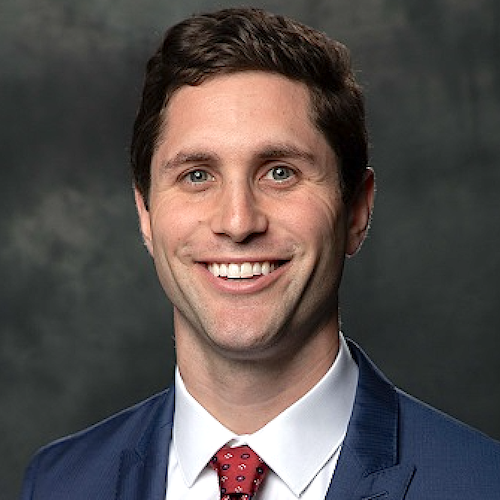
A survey of long-term care providers in Pennsylvania provides a “sobering” look at how the pandemic is affecting operations and should be cause for “immediate alarm,” according to an association representative.
The Pennsylvania Health Care Association COVID-19 Survey Report of assisted living, personal care and skilled nursing providers highlights the “fiscal threat to a fragile industry brought on by a relentless and ongoing COVID-19 response.”
According to the results, 89% of respondents report their business operations are “barely sustainable” or “completely unsustainable” due to the increasing costs associated with COVID-19. And about 68% reported that their occupancy has decreased by more than 10% since January.
“Too often in government, we wait for a bridge to collapse before making investments in our infrastructure. I can tell you today the long-term care bridge is beginning to crumble,” PHCA President and CEO Zach Shamberg said. “Based on what we’ve heard from providers on the front lines, we must do everything we can to ensure long-term care is supported moving forward.”
Shamberg said the association went directly to its members, providers and workforce to learn exactly how the pandemic was affecting operations in mid-August and how they anticipate the coronavirus will affect them in the months and years to come.
“What they told us is sobering, it’s shocking and it’s cause for immediate alarm for those in our legislature, the governor’s office, and the departments of health and human services,” Shamberg said.
Earlier this month, Shamberg shared information on legislation PHCA worked on to address long-term care workforce shortages by amending current state law to allow temporary nurse aides to be placed on the state’s Certified Nurse Aide Registry and continue to provide care in Pennlyvania’s facilities.
The survey results, he said, reflect the growing urgency to address staffing. About 69% of respondents reported using the state’s TNA training program to fill in staffing gaps.
“Today, providers are not only combating COVID-19 in their facilities; they’re combating burnout, fatigue and exhaustion among their healthcare heroes on the front lines every day,” Shamberg said. Administrators and nurses are walking away from the profession due to the “never-ending guidance, requirements, regulations and burdensome bureaucratic red tape,” he added.
The survey revealed that 95% of providers reported that the pandemic further affected their ability to keep and recruit qualified staff.
“These findings are alarming as we attempt to care for the aging population in years to come,” Shamberg said.
In addition to workforce challenges, also affecting providers are incurred costs and skyrocketing expenses for personal protective equipment, testing supplies, infection control, emergency staffing resources and liability insurance. Expenses for some facilities increased more than 200% in the past six months, Shamberg said.
And providers overwhelmingly reported continued shortages in resources to mitigate the spread of COVID-19, including personal protective equipment — 57% report shortages of N95 masks; 55%, gowns; and 47%, gloves — testing and other resources. When asked about state assistance, 35% of respondents said that the state was not very responsive, 31% said they have received little to no help, and 29% characterized state action as responsive.
Turnaround time on COVID-19 tests for residents and staff also remains a challenge, with 58% reporting a three- to four-day turnaround time and 28% waiting five to seven days.
Due to these challenges, about 65% of providers say they have not reopened to visitors.
Shamberg said the conclusion to draw from the survey is that providers need a seat at the table when government and health officials are making relief priority decisions.
“My call to the Legislature, to the governor and members of his administration is that we need to look at long-term care and we need to make investments — real investments — in this sector, so that it’s not one-off payments that are coming from the federal government,” Shamberg said. “It’s shoring up this sector to ensure that we can be successful moving forward.”
In other coronavirus-related news:
- Florida is stepping back from some long-term care policies that were part of an aggressive strategy to limit the spread of coronavirus in assisted living communities and nursing homes. Gov. Ron DeSantis announced that the state is eliminating state-supported bi-weekly testing of long-term care workers and is shuttering 23 dedicated COVID-19 nursing facilities. DeSantis said the polices are no longer necessary, partially because the federal government is requiring nursing homes to test staff members and is supplying the facilities with rapid testing kits. But there are no federal or state requirements for the state’s 3,111 licensed assisted living communities. The move comes as the state reopens long-term care facilities to visitation.
- Georgia Gov. Brian Kemp has signed an executive order to extend current COVID-19 restrictions through Sept. 30, and issued guidance for long-term care facility visitation. Shelter-in-place provisions remain in effect for residents of long-term care facilities, including assisted living communities, and the medically fragile. The executive order adds new language authorizing community and state ombudsmen to perform inspections at long-term care facilities and allowing in-person visitation.
- The Michigan Department of Health and Human Services is expanding its Rapid Response Staffing Resources program to help assisted living communities, nursing homes, and homes for the aged and adult foster care programs that are facing staffing shortages during the pandemic. The program will offer up to 120 hours of staffing coverage, including licensed practical nurses, social workers, direct care workers, dietary aides, dietary cooks and environmental services staff.
- Shipments of Abbott Lab’s BinaxNOW COVID-19 Ag Card point-of-care antigen tests are arriving at communities. Shipments are expected to continue through Dec. 20. Test distribution is prioritized based on Centers for Disease Control and Prevention epidemiological hotspot data, which will be reevaluated monthly. Argentum said it is working with the Department of Health and Human Services to identify opportunities for providers without Clinical Laboratory Improvement Amendments waivers to be eligible through other means to receive shipments of tests.




